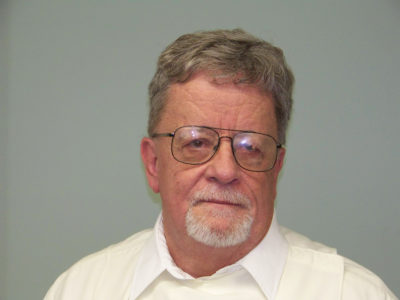Millennial Reflections
By Jeremy Tobin, O.Praem.

Father Jeremy Tobin
The pushback against the liberation of oppressed people, the great strides toward equality, is a constant threat in any society. The completion of what began with emancipation has made great strides. The country began to come together. People began to appreciate and accept diversity. The forces determined to turn back the clock seemed silly to many, but deadly earnest to others.
I believe the election, not once but twice, of the first African American president drove the pushback into high gear. From birtherism, to the tea party to the election of the current president to outright un-American attacks on anyone not white – racism has come out ugly and raucous, ignorant and violent, further tearing the country apart.
After the murders of nine worshippers at Mother Emanuel Church in Charleston South Carolina, we saw the confessed killer wrapped in the confederate flag. The confederate emblem on Mississippi’s state flag, long a symbol of hate and oppression to many, but a symbol of the lost cause and heritage to others, only continues to split the state apart.
The issue of confederate symbols whether statues or flags has gone national. Many are re-examining the history of these monuments, looking closely at when and why those statues appeared, which is at the same time Jim Crow laws appeared. Clarion-Ledger journalist Jerry Mitchell wrote about the topic in the Sunday, August 27, Perspective section of the paperI believe these stars and bars have become an international flag of racism and hate. Germany banned all symbols of the Third Reich, so the neo-Nazis took up the stars and bars to replace the swastika. Most recently, we saw that in the demonstration in Charlottesville.
More than 100 years later, we are still wrestling with the issues of the Civil War. Again, many are stating that defense of slavery was the cause and driver behind that war. This is the 21st century. We have not confronted and successfully dealt with America’s original sin of racism. The U.S. Conference of Catholic Bishops has formed a committee to deal with these issues and the current state of racism in the country.
Rising above all the debate and arguing, let us remember that the power to love is always greater than the power to hate. We go back to the beginning of the 20th century. Hate and violence ruled. Mississippi displayed its ‘strange fruit.’ Ida B. Wells went to Congress to lobby for anti-lynching laws to no avail. Two World Wars erupted spawning a philosophy of white supremacy that could only be quenched by mass genocide and gas ovens.
The push back was the Civil Rights Movement that preached the power of love over hate. The Movement furthered the call for true justice and human rights and used nonviolence to be the model for change.
Today we have foreigners, immigrants, with or without papers. There are those who would imprison them, break up their families and deport them. We have the poor, who some would judge and blame for their situation.
As Catholic Christians, we hear the Bible read out at every Mass. Recently we read from Isaiah: “The foreigners who join themselves to the Lord, ministering to him, loving the name of the Lord, and becoming his servants, and hold to my covenant…them I will bring to my holy mountain and make joyful in my house of prayer. My house shall be called a house of prayer for all people.” (Is.56:1,6-7)
We can listen to the arguments about shifting demographics, how the country will become a majority minority country. We can examine what impact that is having on the current majority, but we must, as Catholic Christians, remember to keep love at the center of our discussions.
The power of love is the only power that can extinguish hate. It was the force of love and coming together that made the Movement succeed back in the day. One set of barriers came down, but love overcame fear, and can do it again.
(Father Jeremy Tobin, O.Praem, lives at the Priory of St. Moses the Black, Jackson.)
